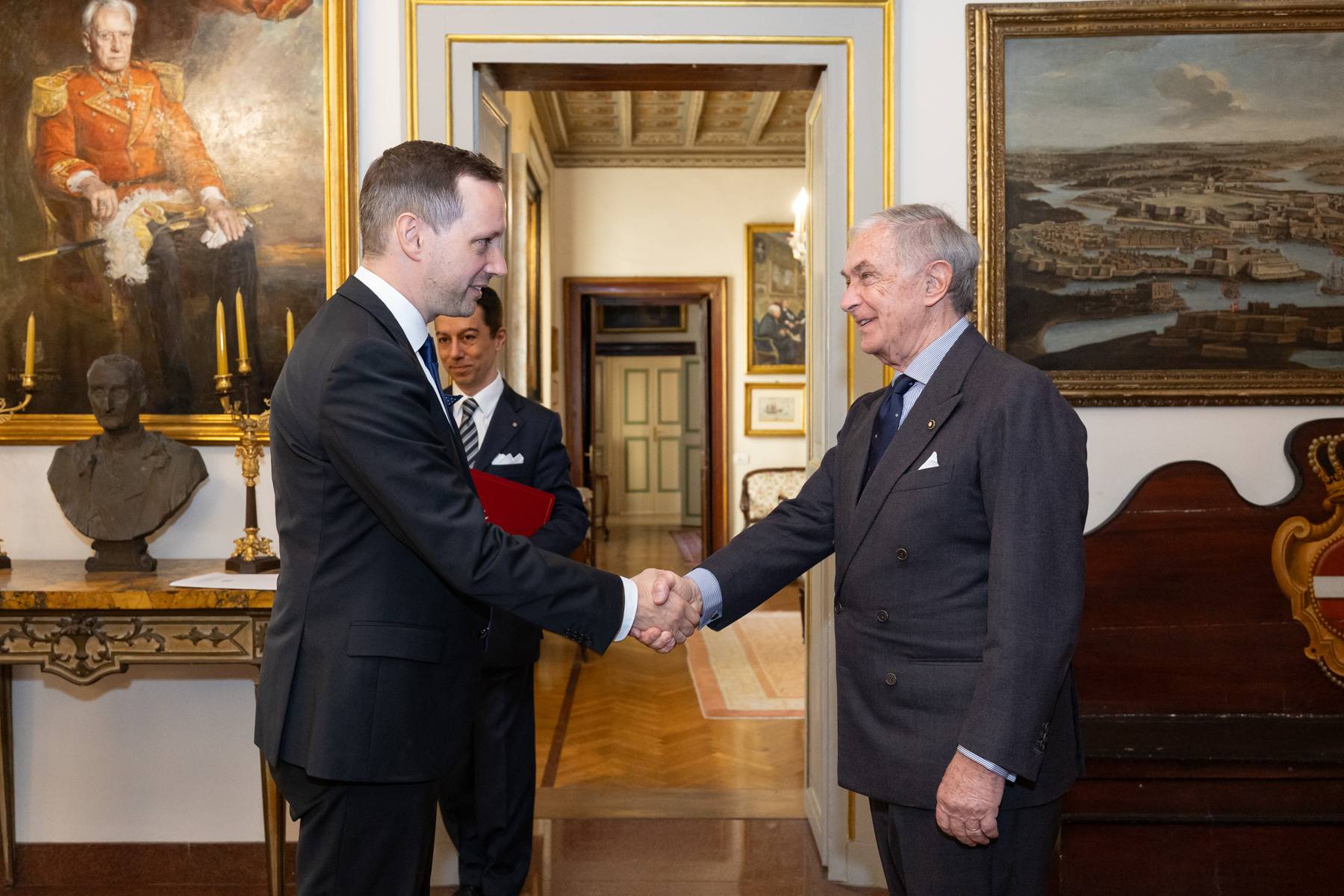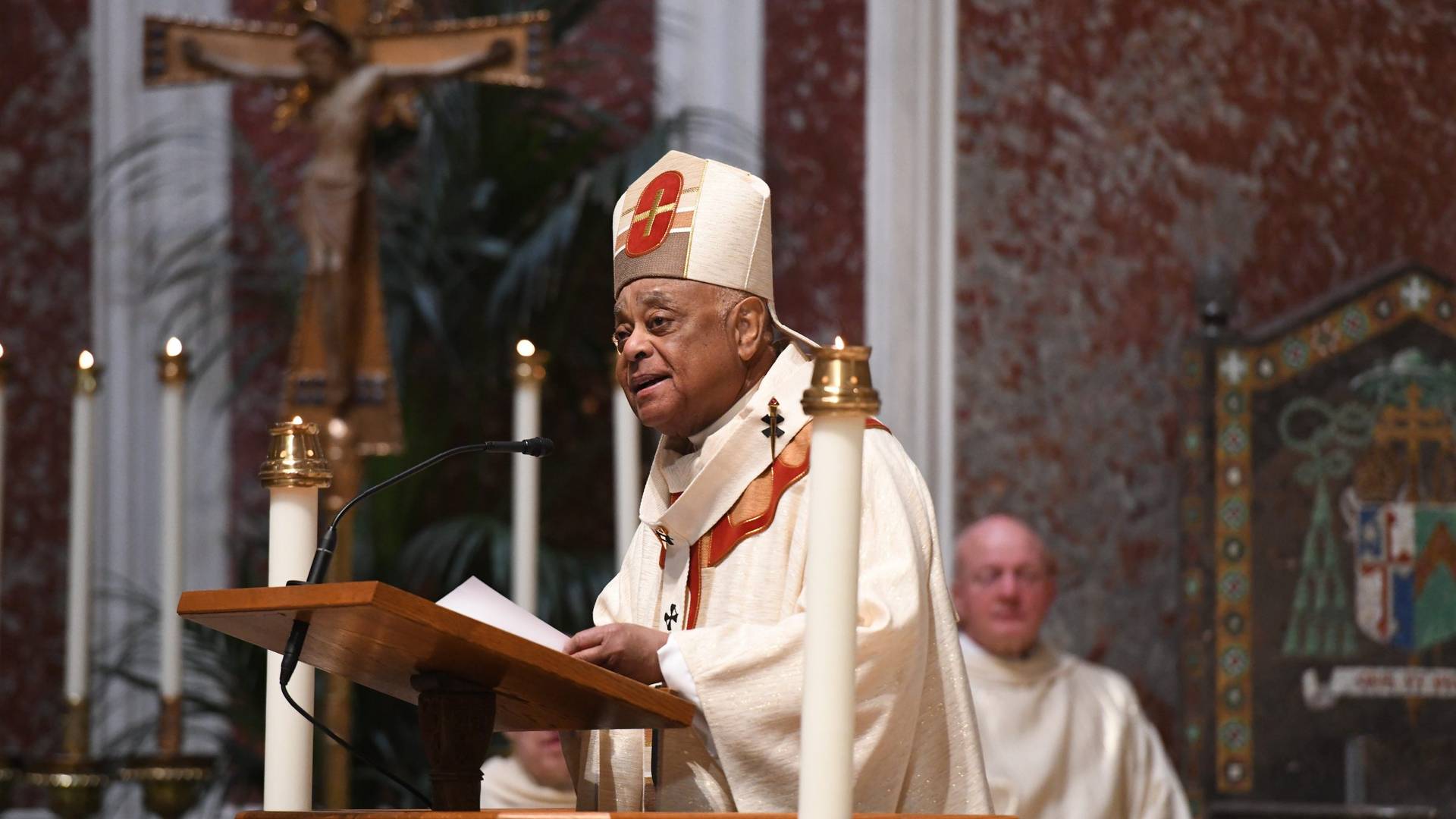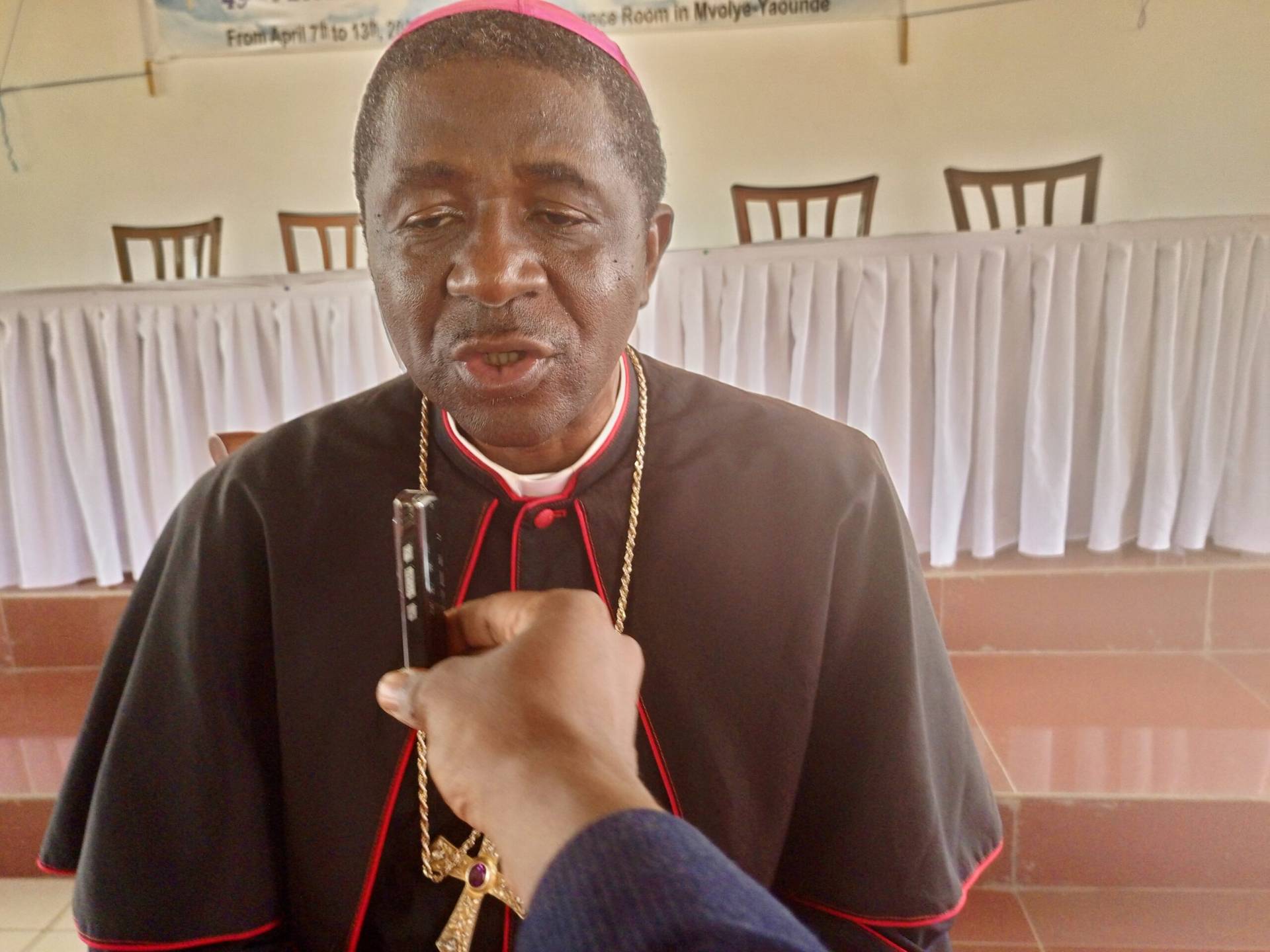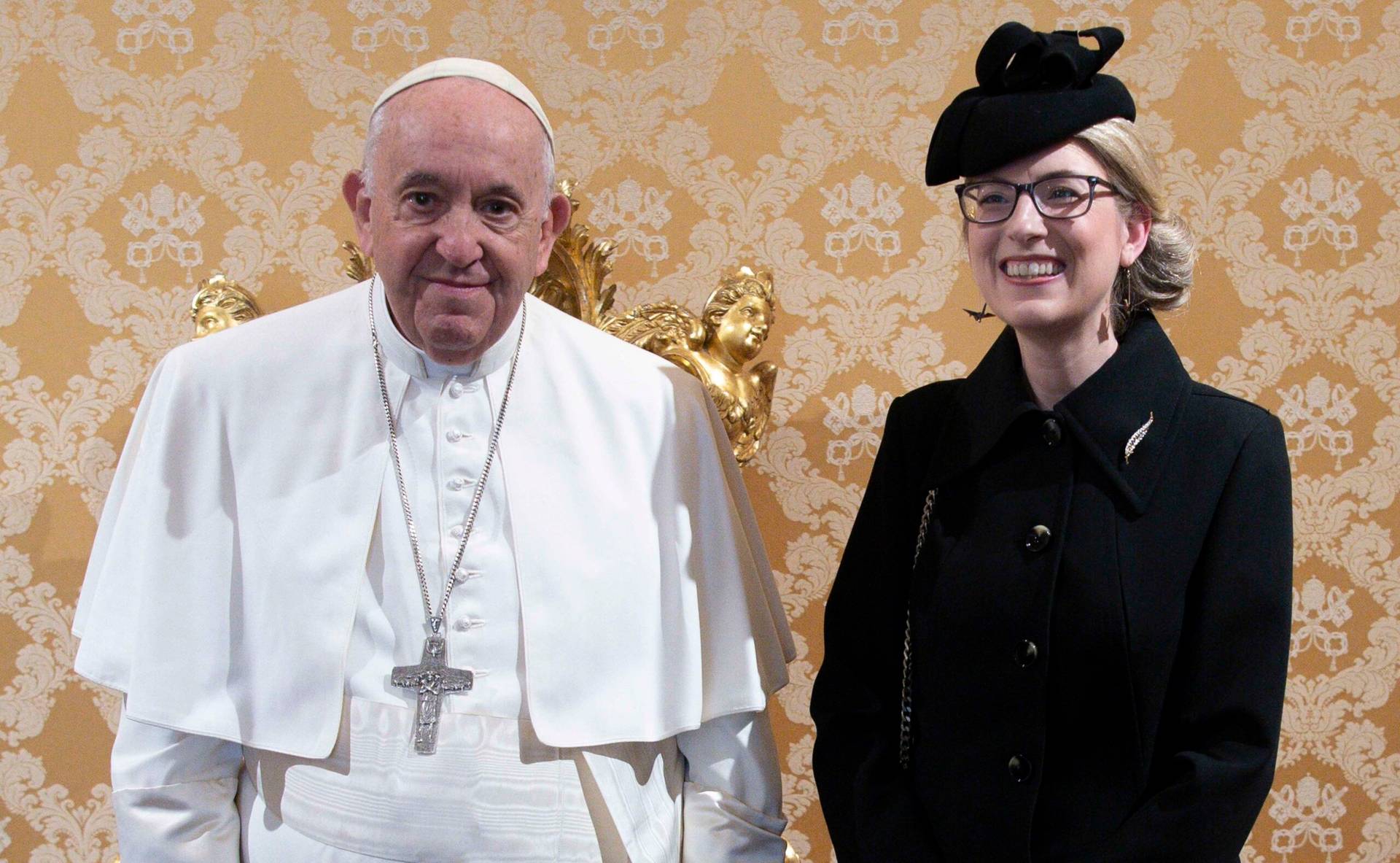ROME— A Chilean priest who’s helping to organize Pope Francis’s trip to Chile and Peru in January, which will be the pontiff’s sixth homecoming to his native Latin America, says he hopes the pontiff’s presence will trigger a “revolution of affection” in a badly fractured society.
“We also hope that the pope’s visit will be a revolution of affection, a hug to Chile’s wounded soul,” said Father Felipe Herrera Espaliat, who’s been tasked with organizing the communication aspects of the visit.
“We need to be reminded that the other is not the enemy, even if he does think differently,” Herrera told Crux on Wednesday.
The pope’s Jan. 15-18 trip to Chile will include three stops: Santiago, the country’s capital; Temuco, in the country’s south; and then Iquique, in the north. The last two are socially and politically charged choices.
Temuco is the epicenter of a long-standing protest by the Mapuche, some of whom have become radicalized, burning down churches and attacking trucks owned by forestall companies.
Iquique, on the other hand, is a stone’s throw from the border with Bolivia, and the two countries have a long-standing conflict over access to the sea. But, according to Herrera, it’s also the “capital of popular religiosity,” not to mention one of the front-lines for immigration in Chile, particularly of people coming from Colombia, Peru, Haiti, and, starting last year, Venezuela.
RELATED: When Pope Francis visits Chile, the story is in the ‘where’
Crux spoke with Herrera while he was in Rome. What follows are excerpts of that conversation.
Crux: Were you surprised by the announcement of the visit?
Herrera: To a certain extent. On the one hand, two years ago, a commission had been set up to prepare a papal trip to Chile, but it fell through. Then in February, the bishops came for their ad limina visit, and once again invited him to visit Chile, as President Michele Bachelet had done when she came, and the pope expressed his will to come.
Yet nothing was said until June, when we were told that the pope was coming and that he’d already set a date, which is January. Not the best month to visit the Southern hemisphere!
Plus, he comes right after presidential elections, so we will have two presidents, the outgoing one and the incoming, which will generate a diverse, even if not necessarily tense, situation.
How do Chileans see the pope’s visit?
Chile, as other countries in Latin America and around the world, because of different social phenomenon, has suffered a deep fracture of its social cohesion. The loss of trust in the institutions, including the Church, government and business people … Every institution today is seen as something not to be trusted.
For this reason, citizens are revolting and demanding rights, not wanting to fulfill any of the corresponding duties. On the other hand, we no longer see those next to us as our brothers and sisters.
Chile’s late Cardinal Raúl Silva Henríquez used to speak of Chile’s ‘soul.’ A beautiful soul in a fraternal country. This soul is broken, and as a Church, we see that there’s a profound wound in it, and the pope might be able to help it heal.
The pope is the bearer of Christ, and I think the pope might leave us with a renewed way of looking at the other as a brother, inspiring us to create a new homeland, one that is once again based in a spirit of fraternity.
We also hope that the pope’s visit will be a revolution of affection, a hug to that wounded soul. We feel that Chile needs to be apapachado (meaning “cuddled” or “pampered.”) We’ve become rough, due to the constant social friction, many times fueled by social media. This has created a dialogue that is permanently aggressive, with politicians constantly attacking one another. We need to be reminded that the other is not the enemy, even if he does think differently.
I believe that if we worked together, we can build a much healthier homeland, embodied in values such as love, brotherhood and subservience, rather than the aggressiveness of imposing ideas. And this is something on which the pope can help us a lot.
How did Chile’s soul break apart?
I would say that it all started with this crisis of trust in institutions.
But for instance, in the case of the Church, did it begin with the Karadima case? [Note: a reference to a notorious case of clerical sexual abuse in Chile.]
It made distrust with the Church explode. But before then, the Church had become distant from the people. It was too focused on issues that were no longer relevant, always looking within and not outside. In this sense, the pope is very lucid in calling us to go out to the periphery.
The Church in Chile has always been very present in the peripheries, as in Argentina, present in the slums.
Has it also become distant for the ‘periphery’ of the middle class?
Exactly. A middle class that has also moved away, because it’s having a wider access to university. There is a higher level of rationality that sometimes alienates people from a religious feeling. Not because faith is not rational, but because they have other interests.
Today, the crisis of vocations is strong because many priests came from the middle class, and today the children of the middle class go to college. There is no incentive in families for their children to be priests or religious, when they have the possibility of having a child who’s an engineer or doctor.
That has influenced a lot, along with the whole crisis, a product of the sexual abuse scandals and a hierarchy that did not know how to handle them.
Two years ago, the pope accused those who were against his decision to appoint Bishop Juan de la Cruz Barros Madrid, who was close to Karadima, to the Diocese of Osorno, of ‘foolishness’ and of allowing a group of leftists to lead them by the nose.
This was very painful, and today that diocese continues to hold great resentment. There continues to be a group of about 60 lay people who keep the resistance to the bishop alive, but he can at least perform his duties, when at the beginning he couldn’t go anywhere.
But is there any truth in what the pope said? Some 50 members of Congress, all of them from the left-leaning party of Bachelet, sent a letter to the pope, which in many ways added fuel to the fire…
I believe this is what bothered Francis the most: That the civil power tried to affect ecclesial power.
Let’s talk about the cities he’s chosen to visit. He’s understandably going to Santiago because it’s the capital. But why is he going to Temuco, in the south?
Temuco is the center, not just of social conflict, because we have many, but of one of the biggest problems regarding the original peoples. The region, known as La Araucanía, is where the largest number of our Mapuche brothers live.
Here, there’s been a concentration of terrorist activity and of resistance to the government, since many want a plurinational country. Many of these Mapuche are being manipulated by certain groups of the far left, but they’re a minority. There are also many who have legitimate, historical claims and debts regarding their lands.
But there’s a minority that has been doing terrorism, burning down more than 20 Catholic churches and some Evangelical ones.
The Church continues to have a strong presence in the region, but we have to be careful, because we don’t want to be seen as taking a position in favor of anyone. Because it’s not the Mapuche as a people who are committing these terrorist acts, but minority groups. We have to acknowledge that the Mapuche have been historically relegated.
But there are also many innocent victims, sons and daughters of German settlers or Chileans who’ve invested or inherited some of these lands. In addition, the government has given specific lands to the original peoples, and not all of them are being worked.
One cannot generalize. I personally believe it’s unfair to speak of the Mapuche as terrorists, because they aren’t. There are some that have done a lot of wrong, just like there are businessmen who’ve done a lot of wrong too.
So, the pope’s stop in La Araucanía is similar to his stop in Chiapas, during his Mexico trip. It’s a point of conflict between an advancing globalization and people who want to defend their culture. In the middle of this, there is an unusual violence exacerbated by political groups, many of them foreigners.
We hope Francis can bring a message of peace to this region.
But can the pope do something, when seeing the burning of churches by these extremist Mapuche, who’ve left signs after burning down churches saying ‘The only church that illuminates is one in flames’?
I believe that the pope’s message won’t be directed only to these extremist people, but to the people in general, who’ve suffered. And this includes those who are Mapuche, and those who are not, the entire Chilean people. In this sense, I believe he’ll deliver a much broader message, without intervening in politics.
One of the things the government has done is create a regional commission to approach this issue, and it’s led by the local bishop, Hector Vargas. They have already submitted a report with suggestions. it remains to be seen if they will be implemented or not.
Then there’s the visit to Iquique, almost on the border with Bolivia. Some could argue he owed you the visit, after what he said during his visit to this country, regarding the need for dialogue on the ongoing conflict over access to the sea, which Bolivia doesn’t have after the War of the Pacific…
His comment was very ill received in Chile. The government was positive about it, because the pope called for dialogue, but Bolivia and Chile have two complaints in the Hague regarding this issue. And they have a president who, whenever he wants to unite the country, does so by finding a common enemy. Historically, that has been Chile.
Nevertheless, Iquique has two reasons that come before the issue with Bolivia. On the one hand, it’s the capital of popular religiosity. The feast of Our Lady of La Tirana can convene 500,000 people every July 16, in the middle of the desert. For two weeks, an entire city comes up from nowhere, with thousands coming down from Bolivia too, to honor our Lady of Carmen. So this is a unifying celebration.
On the other hand, Iquique is one of the poles of migrant reception, particularly of people coming from Colombia, Peru, Haiti, and starting last year, Venezuela.
Chile, together with Argentina, welcomes the biggest number of migrants. And this is a great challenge for Chileans, because we don’t shine for our welcoming attitude towards them. Even if we don’t have the xenophobic attitude that many European countries do, we need to work on integrating them. And this, I believe, is for the pope part of a broader attempt to promote Latin American integration.
















